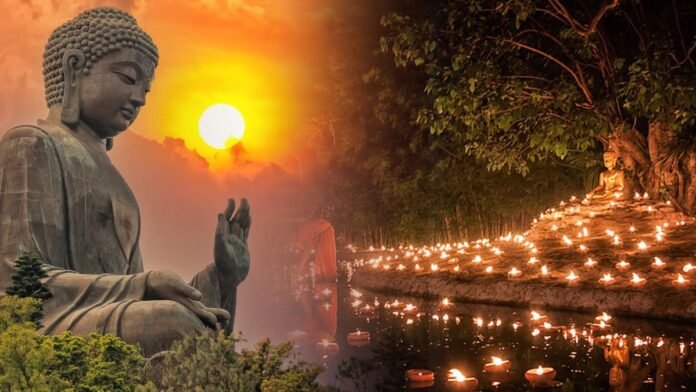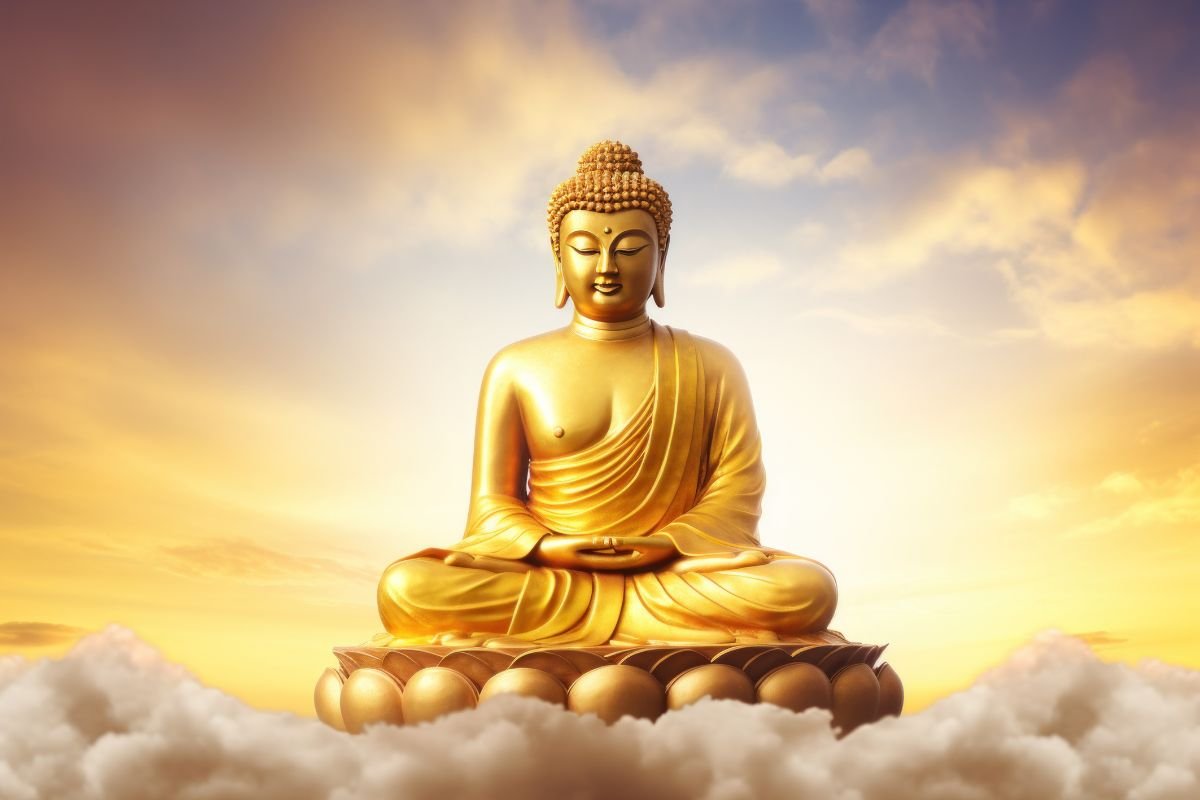By: Lalit Garg
Gautama Buddha is an illuminator, his birth anniversary is celebrated as Buddha Purnima, his attainment of knowledge was fulfilled on the full moon night and his ‘Nirvana Day’ was also accomplished on the full moon day. That’s why Buddha has lightened up the human race. It was the day when Buddha was born, got knowledge, sacrificed the body and attained salvation. Buddha is also called ‘Tathagata’, which means to attain the ultimate truth through the practice of enlightenment. Two and a half thousand years ago, the knowledge which he imbibed, the preaching of that knowledge which he shared among his followers, the relevance of that message still has significance in today’s time. For this, he gave the mantra of ‘Appo Deepo Bhava’, that is, to become light yourself, one cannot reach the destination through the other’s support. Self realization is important.
Buddha Purnima is an important day not only for the followers of Buddhism but also for the entire human race. Buddha became the most popular Indian spiritual saint, social-reformer, spiritual teacher with his high values and knowledge. He touched the hearts of not only many effective personalities but also the common people and brought positive changes in their lives. We can also call him the person and ideologue along with the spiritual revolution. His ideologies are not only a reflection of his revolutionary personality, but also an inspiration of intense sarcasm and change on religious, social distortions and blind people, which changed the life direction of innumerable human beings. He preached about ‘sorrow prevention’ and said that this world is full of sorrows, but the end of sorrows is possible; which he called Nirvana.
Siddhartha was the prince of Kapilavastu before becoming a monk. In search of peace, he left home at the age of 27, leaving the royal life. While travelling, Siddharth reached Sarnath near Kashi, where he converted into a monk. Here he meditated hard under the Bodhi tree in Bodh Gaya. After rigorous penance, Siddhartha attained enlightenment, and he came to be known as the great monk Gautama Buddha. With his knowledge he lit up the whole world. When Buddha saw the people of his era engulfed in ignorance about religious-social, spiritual and other sacrificial rituals, found ordinary people in ignorance in the name of religion, saw women being humiliated, and atrocities against Shudras, he felt pity.
He himself took the fast for the attainment of the first knowledge and, after wandering in the forests for years, did penance and enlightened the soul with knowledge. The enlightenment and light with which he has lived each moment of his life is an important chapter in the history of the Indian sage tradition. He himself received the light of truth, lived an inspiring life and then raised the voice against the evils in the public. The efforts he made to elevate folklife are amazing and surprising. Expressing the essence of his knowledge, he said that there is a reason for every grief. The most important reason for the Human problems being so widespread on the world stage is human ignorance, indulgent lifestyle, indiscipline and perverted food. Buddha says that in the core of the things in which people seek happiness, sorrow ultimately comes out of grief. Presently, even in the transition phase of the crisis, the person who finds himself drowned in pleasures, convenience and narcotics in search of happiness, the end of it is sure to be more sad and painful. Therefore, it is important for a person to make his lifestyle eco-friendly and intoxicated.
In this way, by becoming a monk, Gautam Buddha paid more attention to social welfare than to get himself trapped in the fruitless disputes of the soul and the divine. His teachings became the means of liberating human beings from sorrow and suffering, as well as inspiring the solution of social and worldly problems, which have their own special place in making life beautiful and transmitting honourable values in public opinion. This is the reason that his words started coming into the understanding of the people easily. While Mahatma Buddha propagated the ten pupils with non-violence while adopting the middle Way, people found them easily connected to his words. He believed that if a man conquers his desires, he can attain nirvana. Thus he attacked the priesthood and established the importance of the person.
Gautama Buddha practiced Buddhism and very efficiently organized Buddhist monks and developed a sense of unity among them in a democratic form. Its doctrine of non-violence and compassion was so intriguing that after two thousand years, Emperor Ashoka, influenced by it, accepted Buddhism and stopped the wars. In this way, Buddhism crossed the boundaries of the country and spread its light to every corner of the world. Even today, the humanistic, intellectual and populist hypotheses of this religion cannot be denied and through them a strong system of discrimination can be attacked. This Buddhism is able to provide peace and well-being to the grieved, afflicted and restless humanity. It is developing religious unity in the mind of the people by attacking high, low, discrimination, casteism. It has an important role in paving the way for the development of art, literature and culture by creating an environment of world peace and mutual brotherhood.
Mahatma Buddha was the pinnacle of the social revolution. His philosophy is not only a philosophy of non-violence and compassion, but a philosophy of revolution. Not only did he enforce the pilgrimage culture but he also created new values and standards for an advanced and healthy society. He not only gave the right direction to progressive ideas, but he broke the stagnation in them and heralded a new revolution. Buddha said – hurry up and do great deeds as soon as possible, otherwise sins overlap the good deeds. It is a great expectation of the present era to highlight his contribution in the context of social revolution. Only by doing this will we be able to build a healthy society. The Buddha preached an egalitarian society. Asymmetry arises where there is attachment and malice. A person wanders in the corridors of inequality to nurture his selfishness, display ego, degrade others, and grab power and property.
The Buddha made himself alone, empty, before coming among the people, before sharing his life experiences, before performing rigorous penance and knowing the truth of life. Then he said, do not let anything inside you pollute the inner world. Look neither bad, nor listen bad, nor say badly. This is the message of emptiness, the path to happiness, peace and good health. He spoke of ‘Appo Deepo Bhava’ – becoming your own lamp. Because, surrounded by day-night resolutions-choices, happiness-sorrow, joy and sorrow, scorching in the anxiety of tomorrow, carrying the load of stress, how can the mind be empty in such a situation? How can it be balanced? How can it be grasped? The practice of living in the present is necessary to cope with these conditions. Neither the memory of the past nor the worry of the future. One, who learns to live today, must understand that he has attained the meaning of human life and only a society made of such human beings can be balanced, healthy and equitable. It’s a need of time to establish Buddhism qualities among the masses. Do not limit Buddha in only preaching, but make Buddha a part of life, shape your life with Buddhism culture. (The author is a writer, journalist, columnist who can be reached at lalitgarg11@gmail.com)











